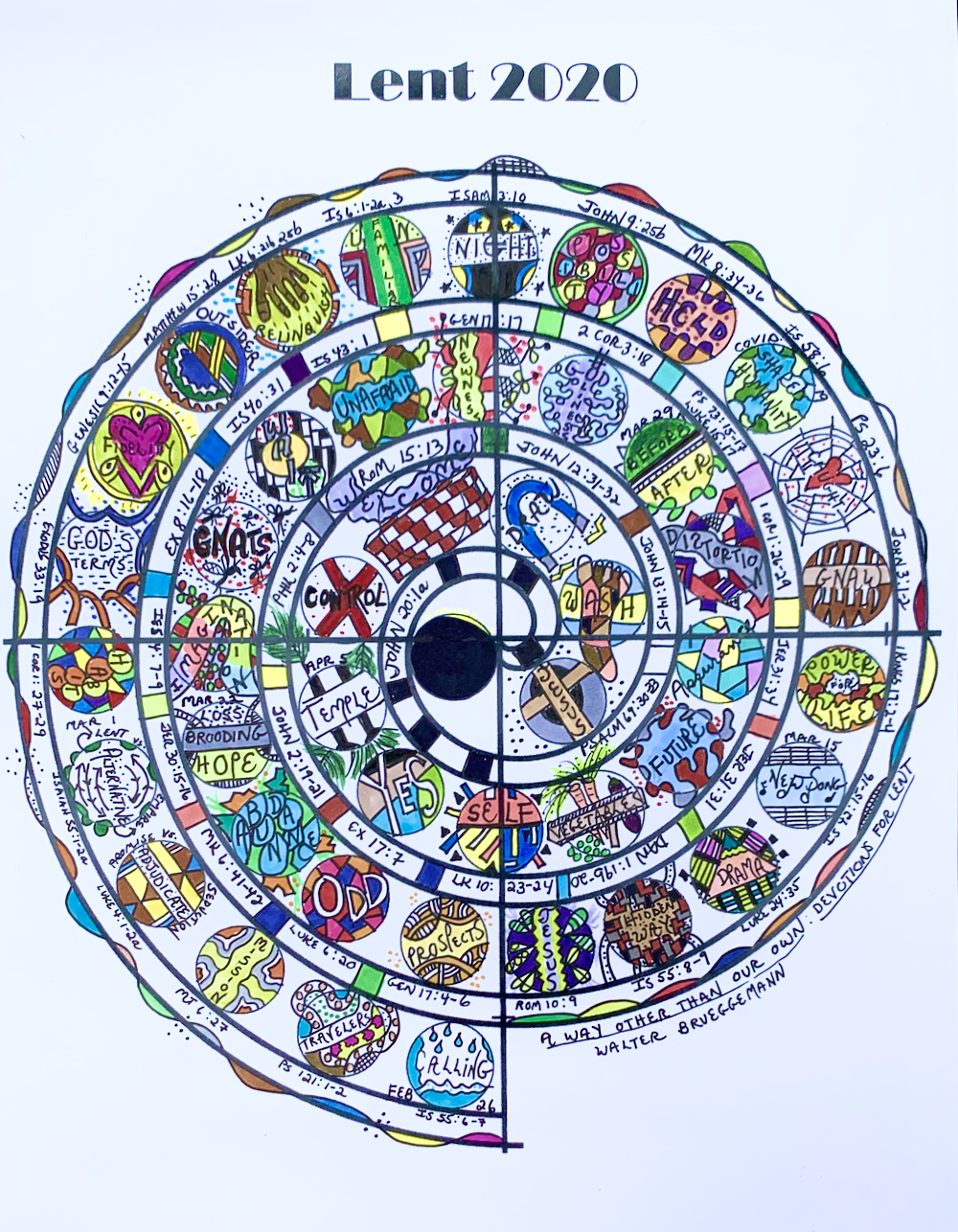Sheltering-at-home brings out my best character assets and my worst character defects. It also heightens my temptation to draw conclusions and impose meaning when confessing and observing might be more honest and real. In this post and several more are some of my confessions and observations about things done and left undone in this unfamiliar world of staying at home.
Confession 1: I did not finish my Lenten Calendar template by the end of Lent. I finally filled in the last space, Holy Saturday, this past Sunday, two weeks after Easter. I started getting behind about the second week of Lent. Then came the words of self-recrimination: “lazy, unfaithful, hypocrite, blah, blah….” Then these words came to me: “You’re packing up your house of sixteen years, giving away most of your furniture, selling and moving out of the house, leaving family and friends, driving close to 1000 miles to shelter in a new place, and waiting to see if you will actually get to spend a year in Jerusalem with your husband as planned. Maybe this is enough work for Lent, loved one.” And maybe my normal planned ways of practicing Lent needed a little shakeup. So my daily practice of reading a scripture passage, reading a correlative meditation, and responding with colored markers and pen on the calendar template became sporadic and bingey. And that turned out to be okay.
What I hadn’t paid conscious attention to during Lent was the circles on the calendar—little worlds of words spiraling around the page. Most of my prayers and reading in the past couple of months have focused on the world—its interconnectedness, smallness, and susceptibility. My Holy Week reflections were all prayers for the world. A theme had emerged throughout Lent without my conscious planning.


I used the same devotional this year as I did in 2016, A Way Other Than Our Own: Devotions for Lent by Walter Brueggemann, Westminster John Knox Press, 2016. Brueggemann’s daily devotions and the scripture passages that inspired them read differently to me this year than in 2016. I suspect that if I had read them on time, two weeks earlier this year, they would have been different, also. On the Saturday before Palm Sunday, I chose “YES” as my word for the day and wrote it in the appropriate circle. The scripture reading was Exodus 17:17 (NRSV): “[Moses} called the place Massah and Meribah, because the Israelites quarreled and tested the Lord, saying, “Is the Lord among us or not?” A few sentences of Brueggemann’s response: “Yes, God has the capacity to transpose wilderness into an arena for life. Yes, God is reliable. Yes God is faithful. Yes, God is an adequate source for life in a context of scarcity and anxiety….The story is about God’s inexplicable capacity to do well-being in a world that has been shut down.” ZING! My late reading of these words put me IN the drama of Scripture, not viewing it from the outside: “In a world that has been shut down…” I hear this question over and over again: “Is the Lord among us or not?” And contrary to the overwhelming evidence of God’s absence, I know strongly in my head, heart, and body, “Yes! Yes! Yes!” My lateness and laxness did not keep me from this Good News.


Your reflections are beautiful and thought provoking, Sybil! I bought your book years ago and now and you have inspired me to get it out again and use it to reconnect with my prayer life.
Thank you for sharing, and I hope you and Andy are staying healthy and well!!! Looking forward to hearing about your adventures and time in Israel. Perhaps if we can get Memphis ChoralArts up and running online with a virtual choir, we can begin singing together again!!
Hi Jeanne. Thanks for your nice comment. I’ve been singing around the house some. Keeps me sane. We’re in FL, no word on Jerusalem yet. Trying to be patient. Not really my gift! Peace to you.